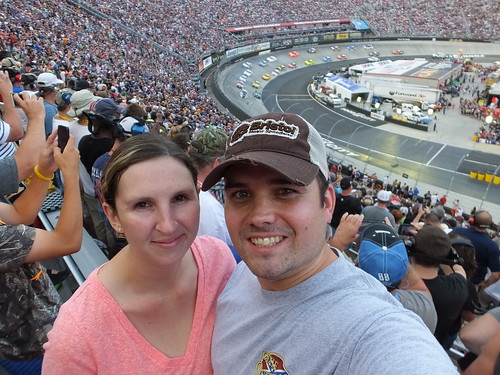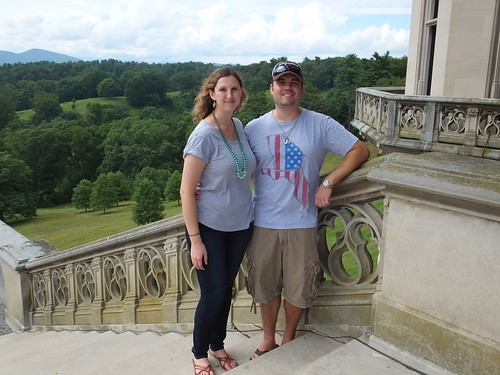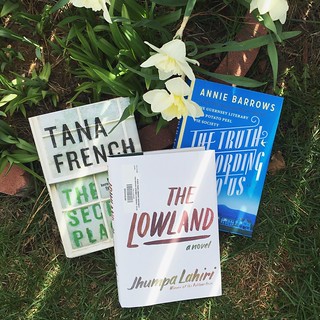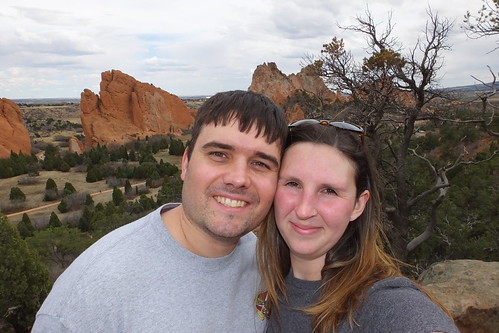"The Atomic Weight of Love" by Elizabeth J. Church
Releases May 3, 2016
352 pages
My rating: 4.5 out of 5
Image from Goodreads
Thank you to NetGalley and Algonquin Books for a free advance copy in exchange for an honest review!
The Short Of It:
I loved this gorgeously written novel of regrets, friendship, love and self-discovery set in desolate, rugged New Mexico between WWII and the Vietnam War. I highly recommend it!
The Long Of It:
They say to write what you know, and Elizabeth J. Church is intimately familiar with Los Alamos, New Mexico, the setting of her first novel; it's where she grew up. Her father, a chemist, was called there to work on the Manhattan Project -- the creation of the atomic bomb -- and Elizabeth's biologist mother later followed him there.
While the book is not about Elizabeth's parents in particular, it was inspired by the scores of women -- many of whom were extremely well-educated -- who ventured to the completely alien landscape of Los Alamos with their husbands and found themselves relegated to housewife status, essentially losing their identities as thinking women. Church gives readers a startling, fascinating peek at what it would've been like for these young women to leave studies, careers and families and relocate to remote northern New Mexico while their husbands worked ceaselessly on a project they couldn't talk about.
Our protagonist is young Meridian Whetstone, an aspiring orinthologist who falls in love with a much older physics professor and reluctantly agrees to postpone her graduate studies to follow him to Los Alamos. But as Alden gradually comes to consider Meridian a homemaker rather than a scholar of equal intellect, their relationship begins to disintegrate. Meridian feels she has no choice but to stay married to Alden -- it is the 1940s, after all -- and she spends a handful of miserable decades increasingly devoid of mental stimulation, camaraderie, love and purpose -- until in her middle age something finally happens to inject life into her dull existence.
I don't really consider myself a modern-day feminist, but "The Atomic Weight of Love" sure made me grateful for the feminists of the past who fought to change so many of the issues that plague Meridian in the novel. She remains trapped in an unhealthy marriage because of social taboo, her husband controls their finances and makes all the family's decisions. When Meridian has a medical emergency, the doctor refuses to tell Meridian what's going on, preferring instead to communicate with the man of the house -- something I as a 21st century reader find shocking and distressing. All this is despite Meridian's top-notch intelligence, and every time I read a book that portrays such realistic historical gender disparity it's a fresh reminder of how lucky I am to be a woman in 2016.
In addition to Meridian's story, I was utterly captivated by the setting and the mid-century time period. The American Southwest isn't a locale that holds particular interest for me, but I found Church's descriptions of the area to be absolutely fascinating. I had no idea that back in the 1940s New Mexico so sparsely populated, and with its rugged landscape, dry desert heat and plentiful natives, it must've seemed like another world entirely to the scientists and their wives. I loved the sense of atmosphere in the novel -- handmade turquoise jewelry, Mexican food smothered in chile sauce, the sparsely stunning rocky ravine where Meridian would escape to birdwatch.
I learned so much -- about birds (because though Meridian is forced to abandon her university studies, she never loses her passion for orinthology), about the atomic bomb, and about what life was like in Los Alamos. Meridian and the issues of marriage, identity, sacrifice, regret, love and friendship are center stage, but they're perfectly supported by the unique WWII story playing in the background. On top of that, Church's prose is beautiful. I couldn't put this book down and I urge you to get wrapped up in Meridian's heartbreaking -- but ultimately hopeful -- saga too!
P.S. After reading "The Atomic Weight of Love," I have a renewed interest in" The Girls of Atomic City" by Denise Kiernan, a non-fiction account of Oak Ridge, Tennessee, another Manhattan Project town.
Releases May 3, 2016
352 pages
My rating: 4.5 out of 5
Image from Goodreads
Thank you to NetGalley and Algonquin Books for a free advance copy in exchange for an honest review!
The Short Of It:
I loved this gorgeously written novel of regrets, friendship, love and self-discovery set in desolate, rugged New Mexico between WWII and the Vietnam War. I highly recommend it!
The Long Of It:
They say to write what you know, and Elizabeth J. Church is intimately familiar with Los Alamos, New Mexico, the setting of her first novel; it's where she grew up. Her father, a chemist, was called there to work on the Manhattan Project -- the creation of the atomic bomb -- and Elizabeth's biologist mother later followed him there.
While the book is not about Elizabeth's parents in particular, it was inspired by the scores of women -- many of whom were extremely well-educated -- who ventured to the completely alien landscape of Los Alamos with their husbands and found themselves relegated to housewife status, essentially losing their identities as thinking women. Church gives readers a startling, fascinating peek at what it would've been like for these young women to leave studies, careers and families and relocate to remote northern New Mexico while their husbands worked ceaselessly on a project they couldn't talk about.
Our protagonist is young Meridian Whetstone, an aspiring orinthologist who falls in love with a much older physics professor and reluctantly agrees to postpone her graduate studies to follow him to Los Alamos. But as Alden gradually comes to consider Meridian a homemaker rather than a scholar of equal intellect, their relationship begins to disintegrate. Meridian feels she has no choice but to stay married to Alden -- it is the 1940s, after all -- and she spends a handful of miserable decades increasingly devoid of mental stimulation, camaraderie, love and purpose -- until in her middle age something finally happens to inject life into her dull existence.
I don't really consider myself a modern-day feminist, but "The Atomic Weight of Love" sure made me grateful for the feminists of the past who fought to change so many of the issues that plague Meridian in the novel. She remains trapped in an unhealthy marriage because of social taboo, her husband controls their finances and makes all the family's decisions. When Meridian has a medical emergency, the doctor refuses to tell Meridian what's going on, preferring instead to communicate with the man of the house -- something I as a 21st century reader find shocking and distressing. All this is despite Meridian's top-notch intelligence, and every time I read a book that portrays such realistic historical gender disparity it's a fresh reminder of how lucky I am to be a woman in 2016.
In addition to Meridian's story, I was utterly captivated by the setting and the mid-century time period. The American Southwest isn't a locale that holds particular interest for me, but I found Church's descriptions of the area to be absolutely fascinating. I had no idea that back in the 1940s New Mexico so sparsely populated, and with its rugged landscape, dry desert heat and plentiful natives, it must've seemed like another world entirely to the scientists and their wives. I loved the sense of atmosphere in the novel -- handmade turquoise jewelry, Mexican food smothered in chile sauce, the sparsely stunning rocky ravine where Meridian would escape to birdwatch.
I learned so much -- about birds (because though Meridian is forced to abandon her university studies, she never loses her passion for orinthology), about the atomic bomb, and about what life was like in Los Alamos. Meridian and the issues of marriage, identity, sacrifice, regret, love and friendship are center stage, but they're perfectly supported by the unique WWII story playing in the background. On top of that, Church's prose is beautiful. I couldn't put this book down and I urge you to get wrapped up in Meridian's heartbreaking -- but ultimately hopeful -- saga too!
P.S. After reading "The Atomic Weight of Love," I have a renewed interest in" The Girls of Atomic City" by Denise Kiernan, a non-fiction account of Oak Ridge, Tennessee, another Manhattan Project town.

















































